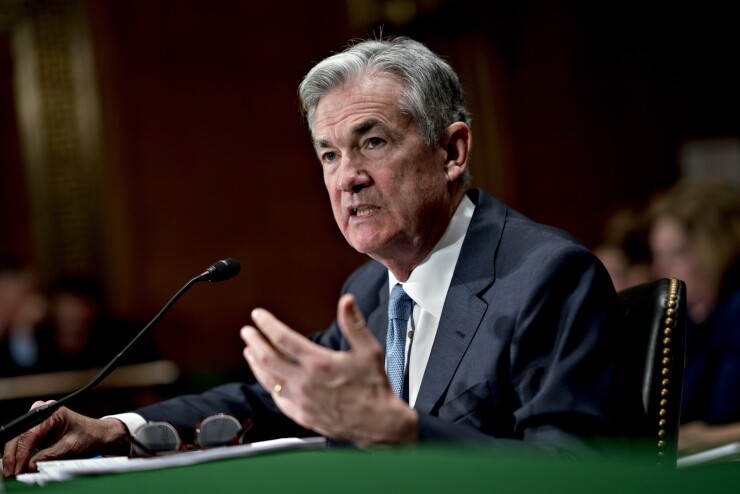
- Key Insight: Federal Reserve Chair Jerome Powell reflected on the Fed's aggressive asset purchases during the pandemic, noting that it may have been an overreaction.
- Expert quote: "With the clarity of hindsight, we could have — and perhaps should have — stopped asset purchases sooner," said Fed Chair Powell.
- What's at stake: The Federal Reserve purchased mortgage-backed securities in large quantities during the pandemic, which some say may have contributed to current imbalances in the housing market, where prices have risen and affordability has worsened.
Federal Reserve Chair Jerome Powell on Tuesday reflected on the central bank's aggressive asset purchases during the COVID-19 pandemic, acknowledging it may have been an overreaction.
Speaking at the National Association for Business Economics conference, Powell said the Fed likely "should've stopped asset purchases sooner," specifically pointing to mortgage-backed securities.
Powell acknowledged previous skepticism from market watchers who questioned the inclusion of agency MBS purchases during the pandemic recovery, but he said the pace of the central bank's purchase of MBS and U.S. Treasury securities was set "in order to avoid a sharp unwelcome tightening of financial conditions." He added that it is "challenging to determine" to what extent the Fed's MBS purchases disproportionately affected housing market conditions during that period.
"Many factors affect the mortgage market, and many factors beyond the mortgage market affect supply and demand in the broader housing market," Powell said.
At the onset of the pandemic, the Fed purchased mortgage-backed securities en masse as part of a quantitative easing effort aimed at keeping financial markets functional. Its MBS holdings more than
The Fed's bulk purchases of MBS' during the pandemic arguably contributed to
"With the clarity of hindsight, we could have — and perhaps should have — stopped asset purchases sooner," said Powell. "Our real-time decisions were intended to serve as insurance against downside risks. We knew that we could unwind purchases relatively quickly once we ended them, which is exactly what we did."
During his speech Tuesday, Powell also mentioned the Fed's ample reserves regime, and said it has proven "highly effective" in helping the central bank maintain rate control independently of its balance sheet. Since June 2022, the Fed has reduced its balance sheet by $2.2 trillion, from 35% to just under 22% of GDP, while maintaining effective interest rate control, Powell said.
The Fed chair said the central bank's "long-stated plan" is to
Powell added that normalizing the central bank's balance sheet does not signal a return to pre-pandemic times, commenting that the size of the Fed's balance sheet "is determined by the public's demand for our liabilities rather than our pandemic-related asset purchases.
"Non-reserve liabilities currently stand about $1.1 trillion higher than just prior to the pandemic, thus requiring that our securities holdings be equally higher," Powell stated. "Demand for reserves has risen as well, in part reflecting the growth of the banking system and the overall economy."
He also dispelled questions regarding whether interest the Fed pays on reserves is costly to taxpayers.
"In fact, that is not the case," Powell said. "The Fed earns interest income from the Treasury securities that back reserves."
Powell added that the Fed remits all
"While our net interest income has temporarily been negative due to the rapid rise in policy rates to control inflation, this is highly unusual," he said. "Our net income will soon turn positive again, as it typically has been throughout our history."





